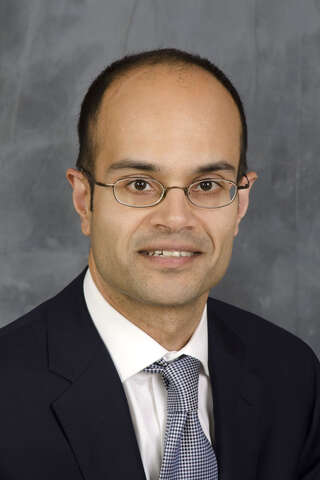Breadcrumbs
Education at the Division of Neurosurgery
From the Residency Program Director's Office


The Neurosurgery Residency Training Program at the University of Toronto is the oldest in Canada and one of the largest anywhere. Our mission is to train the very best medical graduates to become the future leaders of neurosurgery in North America. We have a proud tradition and count among our graduates many former and currently-serving department chairs and neurosurgical pioneers.
The Toronto Program consists of at least 6 years of training, including 42 months of clinical neurosurgery, meeting the requirements of the Royal College of Physicians and Surgeons of Canada. During training, you will be exposed to all subspecialties of neurosurgery as practiced by internationally-renowned faculty at 4 different University-affiliated hospitals. As residents progress in their clinical and surgical skill, there is rapid advancement in their independence and case difficulty. You will always feel challenged in the Toronto Program.
The formal education curriculum is a top priority in our Program. Teaching is done with the goal of maturing our residents into highly-skilled, confident neurosurgeons who will easily succeed in their certification exams. In addition to hospital-based conferences, rounds, and journal clubs, we have Brain School, which consists of an intensive 3 hours every Friday dedicated to covering all important aspects of neurosurgery, in lecture and case discussion format. We also review seminal articles, operative videos, and detailed surgical anatomy. There is strong emphasis on clinical decision-making and learning the nuances of examsmanship to prepare you for the Royal College exam and real-life neurosurgery. In essence, at Brain School we cover theory, practice, and everything in between. In addition, we regularly run several hands-on practical courses to allow you to gain surgical confidence in a lab setting. Examples of these courses include neuroendoscopy, spinal instrumentation, epilepsy, peripheral nerve, temporal bone dissection, and the Lougheed microneurosurgery course. Toronto also attracts several internationally-renowned visiting professors every year, each of whom spends time reserved for resident-only teaching, giving you one-on-one contact with these luminaries.
Academic pursuit is a strong focus here. If you are interested in full-time high-level research, you will be given dedicated time to pursue an advanced graduate degree with the strong support of the Surgeon-Scientist Program. We are very proud of the tremendous successes of our research residents, who routinely win awards, fellowships, and grants from CIHR, Heart & Stroke, NCIC, AANS/CNS, and publish landmark papers in top-level science and medicine journals. Their accomplishments are unparalleled by any other program in North America.
Despite its size, the Toronto Program is a close-knit group; loyal, collegial, supportive, and fun. We enjoy regular social activities, hosted by the Chairman and other Toronto faculty, that allow us a well-deserved respite from the daily stresses of clinical neurosurgery and provide a forum to relax and get to know one another. The city of Toronto itself is one of the most attractive features of training here, with an abundance of world-class culture, recreation, cuisine, and professional sports, unlike anywhere else in the world.
Where you decide to train in neurosurgery will be one of the most important decisions of your life. In making that decision, you should think about the values of the program and what it stands for. Simply put, the Toronto Neurosurgery Residency Training Program stands for “excellence”. The residents and faculty together strive for excellence in clinical care and excellence in research; mediocrity has no place here. That is our tradition and it is our future. Dr. Lozano and I look forward to welcoming you into our Toronto family and having you join us in this quest.
Abhaya Kulkarni
Residency Program Director
